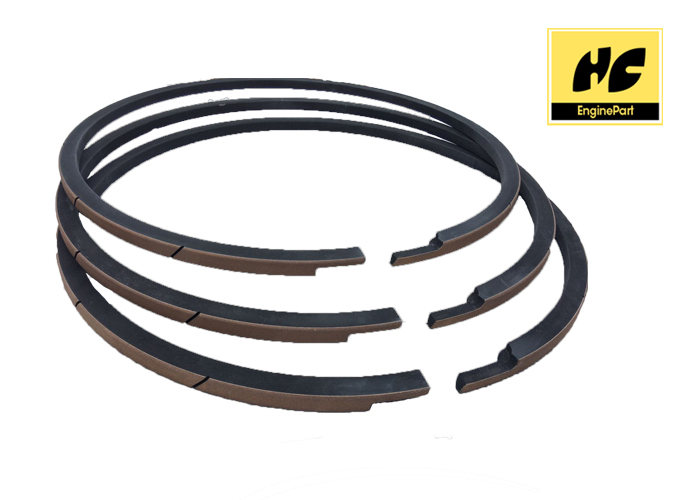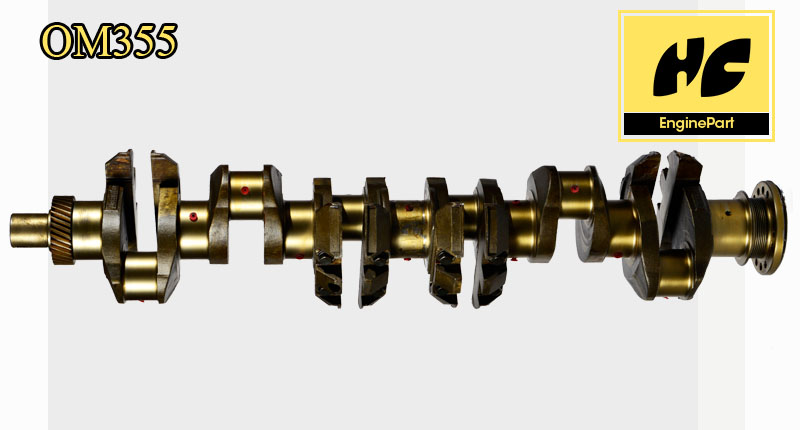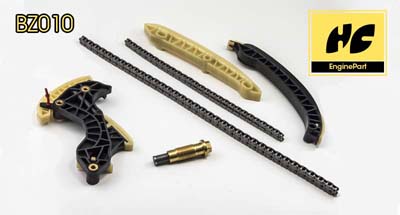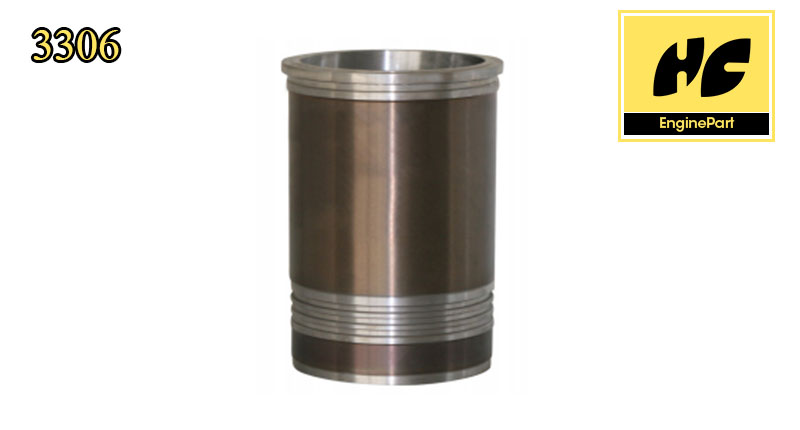- HOME
- PRODUCTS
- Piston Ring
- Piston
- bearing
- Timing Kit
- Cylinder Liner
- Crankshaft
Mercedes Benz OM471 crankshaft
Man B&W 16/24 21/31 23/30 27/38 28/32 32/40
- Marine piston ring

- Timing Kit
-
- Ford
Tempo Timing Chain Kit/kit de distribución/kit de distributionContour Timing Chain Kit/kit de distribución/kit de distributionProbe Timing Chain Kit/kit de distribución/kit de distributionThunderbird Timing Chain Kit/kit de distribución/kit de distributionFord Mustang Timing Chain Kit/kit de distribución/kit de distributionMustang Gt Timing Chain Kit/kit de distribución/spannrollen kitFord 5.0(302) H/O V8 1980-1988 Timing Chain Kit/kit de distribución/spannrollen kitFord Motors Timing Chain Kit/kit de distribución/spannrollen kitFord Explorer Timing Chain Kit/kit de distribución/kit de distributionFord Ranger Timing Chain Kit/kit de distribución/kit de distributionFord 5.4-L,M,Z,3(330) V8 2001 Timing Chain Kit/kit de distribución/kit de distributionFord Timing Chain KitMustang Timing Chain Kit/kit de distribución/kit de distributionCht1300 Timing Chain Kit 76394/kit de distribución/kit de distributionCourier Timing Chain KitFord Trucks For Sale Timing Chain KitFord Taurus Timing Chain Kit/kit de distribución/kit de distributionFocus Timing Chain Kit/kit de distribución/kit de distributionEcosport Timing Chain Kit/kit de distribución/spannrollen kitFord Transit Timing Chain KitFord 184 90Ps Y.M. Timing Chain KitFord 184 120Ps Y.M. Timing Chain KitTransit V 347 2.2TDCI 3.2TDCI 2006-Fiesta Timing Chain KitFord 4.6L 281 Dohc 1998-2000 Timing Chain KitFord Truck 4.6L 281 2001-2002 Timing Chain KitFord 4.6L 281 2003-2005 Timing Chain KitFord Truck 5.4L 330 Dohc 98-00 Timing Chain KitFord Truck 5.4L 330 Dohc 2001-2002 Timing Chain KitFord 5.4L 330 Dohc 1998-2000 Timing Chain KitRangers Timing Chain KitGalaxy Timing Chain KitFord Trans V.347 2.4 Timing Chain Kit/kit de distribución/kit de distributionEdge Timing Chain Kit/kit de distribución/kit de distributionFord Racing 4.6-X(281) Sohc 2005-10 Timing Chain KitBK3Q6268AA 132L 1704089Transit 2.4 Tdci H9Fb 2006.11- Timing Chain Kit/kit de distribución/spannrollen kitSierra Scopio Timing Chain KitFord Fiesta Timing Chain KitFord Transit 2.2L MK7 Timing Chain Kit TCK130/kit de distribución/spannrollen kitFord 5.4L Expedition Timing Chain Kit/kit de distribución/kit de distributionFord Mondeo Timing Chain KitExplorer Timing Chain Kit/kit de distribución/kit de distributionFord F150 Timing Chain Kit/kit de distribución/kit de distributionFord C Max Timing Chain Kit/kit de distribución/kit de distributionFord Focus Rs Timing Chain Kit/kit de distribución/spannrollen kit2013 Mustang Timing Chain Kit/kit de distribución/kit de distribution2010 Ford F150 Timing Chain Kit/kit de distribución/kit de distributionE250 Timing Chain Kit/kit de distribución/spannrollen kitFIESTA 1.5L 1496CC YZJA 19-FD069 V timing chain kit/kit de distribución/kit de distributionfiesta 1.5l 1496cc yzja 19 FD069 timing chain kit/kit de distribución/kit de distribution
- BMW
2006-2009 New Auto Bmw Mini Cooper Clubman Convertible 1.6L Timing Kit/kit de distribución/spannrollen kitMini cooper clubman R55 R56 1.6L 2.0L Timing Kit/kit de distribución/spannrollen kitTiming chain kit fit bmw 3 series bmw 5 series z3 e46 e34 e36 for sale/kit de distribución/kit de distributionBMW Timing Chain Kit/kit de distribución/kit de distributionCooper Timing chain kit/kit de distribución/kit de distributionBMW E30 Timing chain kit/kit de distribución/spannrollen kitBMW 1 Timing chain kit/kit de distribución/spannrollen kitBMW 3 Series Timing chain kit/kit de distribución/kit de distributionBMW Z4 Timing chain kit/kit de distribución/kit de distributionMini Clubman Timing chain kit/kit de distribución/spannrollen kit
- Benz
Timing Chain Kit,kit de distribución,kit de distributionMercedes Smart Timing Chain Kit/kit de distribución/kit de distributionMercedes Vaneo Timing Chain Kit/kit de distribución/kit de distributionE 250 Timing Chain Kit/kit de distribución/kit de distributionMercedes OM668.940 Timing Chain Kit/kit de distribución/kit de distributionMaster Timing Chain Kit/kit de distribución/kit de distributionMercedes-benz OM640.942 Timing Chain Kit/kit de distribución/kit de distributionMercedes Benz A Class Timing Chain Kit/kit de distribución/kit de distributionSmart Cabrio Timing Chain Kit/kit de distribución/kit de distributionMercedes benz E200 Timing Chain Kit/kit de distribución/kit de distributionE Class Mercedes Timing Chain Kit/kit de distribución/kit de distributionMercedes 180 Timing Chain Kit/kit de distribución/kit de distributionMercedes Benz Parts Timing Chain Kit/kit de distribución/kit de distribution
- Opel
Astra Timing Chain KitOpel Astra G Timing Chain KitVauxhall Astra Timing Chain KitVauxhall Vivaro Timing Chain KitVauxhall Zafira Timing Chain KitOpel Corsa A14NET Timing Chain KitOpel K12B Timing Chain KitOpel Zafira Timing Chain KitVauxhall Signum Timing Chain KitOpel Omega B Timing Chain KitOpel Zafira Timing Chain Kit
- Honda
Honda S2000 Timing Chain KitHonda Timing Chain KitHonda Civic Timing Chain KitHonda Civic Hybrid Timing Chain KitHonda Fit & Fit Sport Timing Chain KitHonda City Timing Chain KitAccord Timing Chain KitHonda Cars Timing Chain KitHonda Accord Timing Chain KitS2000 2Dr Base 2.0L Ka6Mt Timing Chain KitHonda S2000 2.0L F20C1/C2 Timing Chain Kit
- Mitusibishi
Mitsubishi Pick Up Timing Chain KitMitsubishi Pajero Timing Chain KitMitsubishi Montero Timing Chain KitMitsubishi Shogun Timing Chain KitMitsubishi Lancer Timing Chain KitAuto Mitsubishi Timing Chain KitMitsubishi Mirage Timing Chain Kit
- Nissan
Timing Chain Kit /kit de distribución/kit de distributionCherry Timing Chain Kit/kit de distribución/kit de distributionHomer Timing Chain Kit/kit de distribución/kit de distributionAtlas Timing Chain Kit/kit de distribución/kit de distributionNissan Almera Timing Chain Kit/kit de distribución/kit de distributionNissan Sunny Timing Chain Kit/kit de distribución/kit de distributionNissan Cedric Timing Chain Kit/kit de distribución/kit de distributionBluebird Timing Chain Kit/kit de distribución/kit de distributionNissan Serena Timing Chain Kit/kit de distribución/kit de distributionNissan Frontier Timing Chain Kit/kit de distribución/kit de distributionNissan 240Sx For Sale Timing Chain Kit/kit de distribución/kit de distributionNissan Altima Timing Chain Kit/kit de distribución/kit de distributionNissan Navara Timing Chain Kit/kit de distribución/kit de distributionNissan Pathfinder Timing Chain Kit/kit de distribución/kit de distributionTiming chain kit fit for Nissan Z24/kit de distribución/kit de distributionNissan Patrol Timing Chain Kit/kit de distribución/kit de distributionNissan Vanette Timing Chain Kit/kit de distribución/kit de distributionLeopard Timing Chain Kit/kit de distribución/kit de distributionNissan QG15DE QG18DE Timing Chain Kit/kit de distribución/kit de distributionAltima X-Trail QR20DE Timing Chain Kit/kit de distribución/kit de distributionNissan QR25DE Timing Chain Kit/kit de distribución/kit de distributionNissan Note Timing Chain Kit/kit de distribución/kit de distributionNissan Micra Timing Chain Kit/kit de distribución/kit de distributionNissan Caravan Timing Chain Kit/kit de distribución/kit de distributionNissan Cabstar Timing Chain Kit/kit de distribución/kit de distribution2005 Nissan Altima Timing Chain Kit/kit de distribución/kit de distributionNissan 350Z Timing Chain Kit/kit de distribución/kit de distributionNissan Juke Timing Chain Kit/kit de distribución/kit de distributionNissan Maxima Timing Chain Kit/kit de distribución/kit de distributionNissan VH45De 4494CC V8 1990-96 Timing Chain Kit/kit de distribución/kit de distributionNissan Tiida Timing Chain Kit/kit de distribución/kit de distribution2006 Nissan Altima Timing Chain Kit/kit de distribución/kit de distributionNissan Presage Timing Chain Kit/kit de distribución/kit de distributionNavara Timing Chain Kit/kit de distribución/kit de distributionNissan Armada VK56DE Timing Chain Kit/kit de distribución/kit de distributionNissan Xterra Timing Chain Kit/kit de distribución/kit de distributionNissan NA16 Sohc 8V 1.6L 1992-1999 Timing Chain Kit/kit de distribución/kit de distributionNissan H20 Timing Chain Kit/kit de distribución/kit de distributionNissan VK45DE Infinity 2002-09 Timing Chain Kit/kit de distribución/kit de distributionNissan KA20De D22 Lpd22 1999 Timing Chain Kit/kit de distribución/kit de distributionNissan VQ35DE 2001-04 Pathfider Timing Chain Kit/kit de distribución/kit de distributionNissan Qashqai Timing chain kit/kit de distribución/kit de distributionNissan Y61 GRL Timing Chain Kit/kit de distribución/kit de distributionSilvia Timing Chain Kit/kit de distribución/kit de distribution
- Toyota
Toyota Corolla Timing Chain KitToyota Starlet Timing Chain KitToyota Carina Timing Chain KitToyota 20R 21R Corona Timing Chain KitToyota Land Cruiser Timing Chain KitToyota Hiace Timing Chain KitToyota Hilux Timing Chain KitToyota Celica Timing Chain KitToyota Estima Timing Chain KitToyota Hilux For Sale Timing Chain KitToyota 1RZ Timing Chain KitToyota Echo Timing Chain KitToyota Verso Timing Chain KitToyota 1ZRFE Timing Chain KitToyota 1AZ-FE 2AZ-FETiming Chain KitLexus Lx450 Timing Chain KitToyota Matrix Timing Chain KitToyota Tacoma Timing Chain KitToyota Fj Cruiser Timing Chain KitToyota Highlander Timing Chain KitToyota Highlander For Sale Timing Chain KitToyota 5GR-FE Timing Chain KitToyota Aygo Timing Chain KitToyota Auris Timing Chain KitToyota Accessories Timing Chain KitToyota Vitz Timing Chain KitHilux Tacoma Timing Chain KitToyota Yaris For Sale Timing Chain KitToyota Lexus Timing Chain Kit2012 Toyota Camry Timing Chain KitToyota Sequoia Timing Chain KitToyota 3UR-FE Timing Chain KitToyota Corolla 2008 Timing Chain KitToyota 1zz 1ZZ-FE/3ZZ-FE/4ZZ-FE engine timing chain kits
- Suzuki
Suzuki Sx4 Timing Chain KitGrand Vitara 2005 Timing Chain KitSuzuki Splash Timing Chain KitSuzuki Ignis Timing Chain KitSuzuki Jimny Timing Chain Kit2004 Suzuki Verona Timing Chain KitSuzuki Timing Chain KitSuzuki Grand Vitara For Sale Timing Chain KitSuzuki K14B Timing Chain KitSuzuki Grand Vitara 2012 Timing Chain KitSuzuki Xl7 Timing Chain Kit
- Mazda
Mazda Timing Chain KitMazda B2300 Pick-Up Timing Chain KitMazda 2.3L L3V ,L3X Timing Chain KitTribute Timing Chain KitTribute Hybrid Timing Chain KitMazda 5 Timing Chain KitMazda B2600 Timing Chain KitAuto Mazda Timing Chain KitNavajo Timing Chain KitMazda 4.0(244) V6 1995-2000 Timing Chain KitMazda 3 Timing Chain Kit2010 Mazda 3 Timing Chain KitMazda6 Timing Chain KitMazda 2 Timing Chain KitMazda Cx 7 Timing Chain KitMazda Protege Timing Chain KitMazda 2.0L IVCT TURBO 2012-2015 Timing Chain Kit
- Daihastu
- Isuzu
Isuzu Timing Chain KitIsuzu Impulse Timing Chain KitIsuzu Trooper Timing Chain KitIsuzu Hombre Timing Chain KitIsuzu G161Z Timing Chain KitIsuzu Ascender Timing Chain Kit
- Hyundai
Elantra Timing Chain KitHyundai Getz Timing Chain KitHyundai Motors Timing Chain KitTiburon Timing Chain KitHyundai 2.0L G4Gc Timing Chain KitHyundai Tucson Timing Chain KitHyundai Santa Fe Timing Chain KitHyundai G4FA Timing Chain KitHyundai G4KD Timing Chain KitHyundai Timing Chain KitHyundai Accent Timing Chain KitGenesis Timing Chain KitHyundai Sonata Timing Chain KitHyundai Hb20 Timing Chain KitHyundai IX35 Timing Chain Kit
- Iveco
- Jeep
Jeep Cherokee Timing Chain KitJeep 4.0(242) 6 Cyl. 87-93 Timing Chain KitJeep Wrangler Timing Chain KitCherokee Jeep Timing Chain KitGrand Cherokee Timing Chain KitJeep Timing Chain KitDakota Dodge Timing Chain KitRam Trucks 2002 Timing Chain KitJeep 4.7-J,N 2002-08 Timing Chain KitJeep Commander Timing Chain KitJeep Grand Cheroke 3.0L 3.2L 3.6L Timing Chain KitJeep Grand Cherokee Timing Chain Kit
- Kia
Kia Timing Chain KitKia Picanto Timing Chain KitKia Motors Timing Chain KitKia Auto Timing Chain KitEntourage Timing Chain Kit
- Chevrolet
Chevrolet 1ZZFE Timing chain kitChevy Timing Chain KitEquinox Timing Chain KitMalibu Timing Chain KitBeretta Timing Chain KitChevy Malibu Timing Chain KitCitation Timing Chain Kit C368Cavalier Timing Chain Kit C372Camaro Timing Chain Kit C373Impala Timing Chain KitMonte Carlo Timing Chain Kit C499Chevrolet 5.0 Timing Chain Kit C506Chevrolet 1.9L 119 4Cyl 82-85 Timing Chain KitCorsica Timing Chain KitChevy Impala Timing Chain KitExpress Timing Chain KitHeavy Duty Timing Chain KitChevrolet 5.7 Timing Chain Kit 73069Chevrolet Heavy Duty Timing Chain KitChevrolet 6.2 Timing Chain KitSuburban Timing Chain KitChevrolet Avalanche Timing Chain KitTrailblazer Timing Chain KitChevrolet Blazer Timing Chain KitCaprice Timing Chain KitChevy Colorado Timing Chain KitCanyon Timing Chain KitChevy Equinox Timing Chain KitChevy Traverse Timing Chain KitPontiac Timing Chain KitMonte Timing Chain KitChevrolet C14/C15/C16/B15/B16 Timing Chain KitChevrolet Z22 Yh Timing Chain KitSpark Timing Chain KitCorvette Timing Chain Kit
- Citroen
Citroen berlingo Timing chain kitCitroen C4 Timing chain kitCitroen C3 Timing chain kitCitroen C1 1.0 1KR-FE 2005.6- Timing chain kitRELAY 2.2 HDi 4HV 4HU Timing chain kitCitroen c5 Timing chain kit
- Audi
Audi Timing Chain KitAudi EA111 timing chain kitGolf Timing chain kitAudi A6 EA888 Timing chain kitAudi A4 A6 2.0TDI Oil Pump Chain tensioner kitAudi Quattro Timing Chain KitAudi A4 Timing chain kitA6 Audi Timing chain kitAudi A6 Timing chain kitAudi TT Quattro Timing Chain KitAudi A6 Avant Timing Chain Kit
- Peugeot
Peugeot 405 Timing Chain KitPeugeot 207 Timing Chain Kit307 Estate Timing Chain KitPeugeot 3008 Timing Chain KitPeugeot 107 Timing Chain KitPeugeot 4Hu Timing Chain KitEstate Timing Chain Kit
- Renault
Renault Timing Chain KitTCK58Renault Megane Timing Chain Kit
- Chrysler
Chrysler Timing chain kitChrysler concorde Timing chain kitChrysler cars Timing chain kitChrysler corporation Timing chain kitChrylser 3.7L SOHC V6 2004-07 Timing chain kitChrysler auto Timing chain kitChrysler vehicles Timing chain kitTown & country Timing chain kitChrysler town and country Timing chain kitAspen Timing chain kitChrysler PT Cruiser Timing chain kitAvengers Timing chain kitCirrus Timing chain kitLimousine Timing chain kitChrysler 3.6L Town Country Timing chain kit
- Volkswagen
Volkswagen Polo Timing Chain Kit/kit de distribución/kit de distribution/kit de distribución/kit de distributionBMD Timing Chain Kit/kit de distribución/spannrollen kitVW Golf Plus Timing Chain Kit/kit de distribución/spannrollen kitVolkswagen EA888 Timing Chain Kit/kit de distribución/spannrollen kitVolkswagen Passat Oil pump chain kit/kit de distribución/spannrollen kitVolkswagen Bora Timing Chain Kit/kit de distribución/kit de distributionVW Transporter For Sale Timing Chain Kit/kit de distribución/spannrollen kitVW EOS Timing Chain Kit/kit de distribución/kit de distributionVolkswagen Jetta Timing Chain Kit/kit de distribución/kit de distributionVolkswagen Passat Timing Chain Kit/kit de distribución/kit de distributionVolkswagen Phaeton Timing Chain Kit/kit de distribución/kit de distribution
- Dodge
Dodge Pickup Timing Chain KitDodge Magnum Timing Chain KitDodge Intrepid Timing Chain KitDodge Trucks Timing Chain Kit 76155Dodge Dakota Timing Chain KitDakota Timing Chain Kit 9-0393SDurango Timing Chain KitDodge Parts Timing Chain KitDynasty Timing Chain KitRam 1500 Timing Chain KitDodge Journey Timing Chain Kit,Dodge Caliber Timing Chain KitDodge Caravan Timing Chain KitDodge 1500 Timing Chain KitCaravan Timing Chain KitDodge Grand Caravan Timing Chain Kit2013 Dodge Charger Timing Chain Kit
- Fiat
Strada Timing Chain KitDucato Timing Chain KitPalio Timing Chain Kit500 Fiat Timing Chain KitFiat Croma Timing Chain KitCroma Timing Chain KitDucato Timing Chain Kit
- Acura
K24A2 Honda Parts Acura Tsx Element Timing Chain Kit2002-2006 KA20A Honda Acura RSX Type S Timing Chain Kit for Sale2009-2010 KA5AT KA6MT Honda Accord Timing Chain Kit
- Alfa romeo
Alfa Romeo 2198CC Brera 2.2JTS 2006.1 Timing chain kitAlfa Romeo Spider (939)2.2JTS 2006.9 Balance kitAlfa Romeo Mito Timing chain kit
- American motors
American Motors 2.5-U(150) 4 Cyl. 1983-1987 Timing chain kitAmerican Motors 2.8(173) V6 1985-86 Timing chain kit
- Cadillac
Cimarron Timing Chain KitCimarron 2.8-W(173) V6 85-88 Timing Chain KitCadillac Timing Chain KitEldorado Timing Chain Kit
- Cam Phaser VVT
VVT gear for European vehicleVVT gear for American vehicleVVT gear for Asian vehicle03C109088B 03C109088E 03C109088F VVT gear Cam phaser for Volkswagen EA111
- Daimler
- General motors
- Hummer
Hummer Timing Chain KitCanyon 2007-10 Timing Chain KitHummer H3 Timing Chain KitHummer 6.0L 366Ci Lq4 V8 2003-07 Timing Chain Kit
- Infiniti
Infinity Timing Chain KitInfiniti Cars Timing Chain KitInfinity I35 Timing Chain KitInfiniti Fx35 Timing Chain KitInfinity Car Timing Chain KitInfinity VK45DE FX45 M45 Q45 Timing Chain KitArmada Timing Chain Kit
- Buick
Skylark 2.0-B,P Timing chain kitBuick Century Timing Chain KitSomerset Timing Chain KitSkylark 2.3-D Timing Chain KitSkylark 2.4-T Timing Chain KitBuick 2.4-T(146) Dohc 4 Cyl.1997-02 Timing Chain KitRegal Timing Chain KitCentury Skylark 2.8-S,X,Z Timing Chain KitBuick Lesabre Timing Chain KitBuick Regal Timing Chain KitBuick 3.2(196) V6 1978-1979 Timing Chain KitCentury Timing Chain KitPark Ave 3.8 Timing Chain KitBuick Rendezvous Timing Chain KitBuick Lacrosse Timing Chain KitBuick Terraza Timing Chain Kit
- Jaguar
- LTI
- Lincoln
Lincoln Timing Chain KitLincoln Cars Timing Chain KitLincoln Mkz Timing Chain KitMilan Timing Chain KitContour Timing Chain KitAuto Lincoln Timing Chain KitZephyr Timing Chain Kit
- LDV
- Lotus
- Lexus
Lexus 3Gr-Fe Timing Chain KitToyota Land Cruiser For Sale Timing Chain KitGS350 Timing Chain KitLexus Cars Timing Chain KitLexus 570 Timing Chain Kit
- Lancia
- Roewe
- Saab
Saab Timing Chain KitSaab 93 Timing Chain KitSaab 9000 Timing Chain Kit
- Saturn
Saturn Timing Chain KitSaturn Sci Timing Chain KitSaturn Sc2 Timing Chain KitSaturn 1.9L L4 Sl1 Timing Chain Kit
- Ford
- Timing chain cover
-
- Timing cover case gasket 55265148 Fiat OPEL 1.3
- OPEL Corsa D Crossmember 13427070
- Renault Clio Mk3 Front Subframe
- Timing Tool Set for BMW N12 N14 Mini Cooper PSA
- Timing Tool Set BMW N43
- VALVE COVER 55564395
- VALVE COVER 55556284
- Ford Transit 2.4 Gasket
- Ford Transit 2.4 Oil Seal
- Ford Transit 2.2
- Renault 2.0 dCi
- Ford Transit 2.4
- Ford Transit MK7 MK8
Oil needs to be changed regularly
2024-02-28
1、 Introduction
Oil, as the internal "blood" of the engine, plays a crucial role in ensuring the normal operation of the engine.
However, over time, the engine oil will gradually deteriorate, affecting its lubrication, cooling, and cleaning functions.
This article will explore in detail the principles, functions, discrimination methods, and main causes of engine oil deterioration, and propose corresponding treatment measures to help you better understand and handle the problem of engine oil deterioration.
2、 Principle of oil deterioration
The process of oil deterioration is a complex chemical and physical process. During the use of engine oil, it is affected by factors such as high temperature, high pressure, and oxidation, leading to the gradual failure of additives and changes in the molecular structure of the base oil. In addition, factors such as metal wear particles, moisture, and fuel dilution inside the engine can also accelerate the deterioration process of the engine oil.
3、 The function of engine oil
Oil plays multiple roles in the engine, including lubrication, cooling, cleaning, rust prevention, and sealing. The lubrication effect of engine oil can reduce friction between various components inside the engine and reduce wear; The cooling effect can help the engine dissipate heat and prevent overheating; The cleaning effect can remove carbon deposits and impurities from the interior of the engine, maintaining its cleanliness; The anti rust effect can prevent the internal metal components of the engine from rusting; The sealing effect can ensure the internal sealing of the engine and prevent oil and gas leakage.
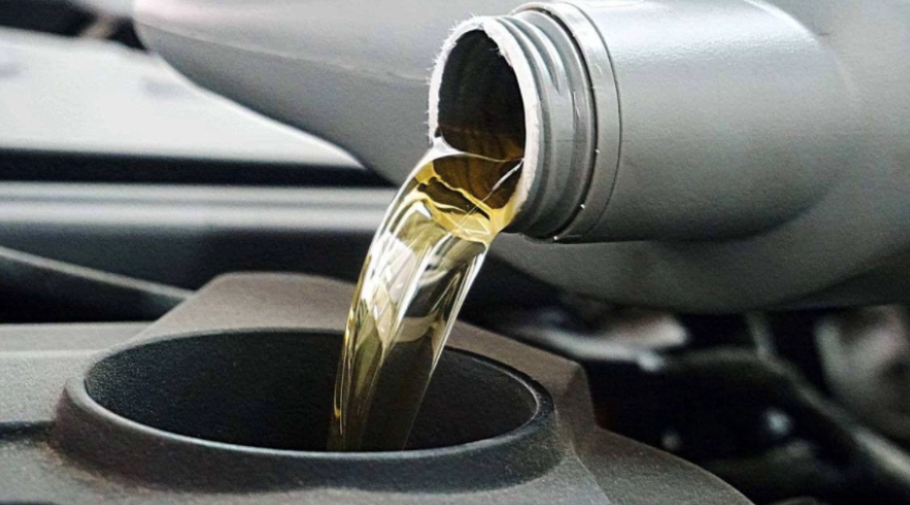
4、 The discrimination method for engine oil deterioration
Appearance discrimination: Deteriorated engine oil usually appears black or dark brown, while fresh engine oil appears yellow or amber. In addition, spoiled engine oil may also contain impurities such as metal particles and carbon deposits.
Viscosity discrimination: The viscosity of engine oil will change with deterioration. The use of a viscometer can measure the viscosity of engine oil and compare it with the standard value to determine whether the engine oil has deteriorated.
Odor discrimination: Deteriorated engine oil usually has a burnt or sour odor, while fresh engine oil has a light oil smell.
5、 The main causes of engine oil deterioration
Oxidation: Under the action of high temperature and air, engine oil will undergo oxidation reaction, generating acidic substances and precipitates, leading to engine oil deterioration.
Water and fuel dilution: Water and fuel inside the engine can dilute the engine oil, reducing its performance.
Metal wear particles: The wear of metal components inside the engine will produce metal particles, which will mix with the engine oil and accelerate the deterioration process of the oil.
6、 How to deal with the problem of engine oil spoilage
Regular oil check: It is recommended that car owners check the color, viscosity, odor, and oil level of the oil after driving a certain mileage or time to ensure that the oil is in good working condition.
Regular oil change: According to the recommendations of the vehicle manufacturer, replace the oil and oil filter regularly. In general, the oil needs to be replaced after 220 days of use in the engine to ensure the performance of the oil and the normal operation of the engine.
Keep the engine clean: Regularly clean the inside of the engine, remove carbon deposits and impurities, and keep the engine clean.
Using high-quality engine oil: Choosing high-quality engine oil can provide better lubrication and protection, and extend the service life of the engine oil.
7、 Conclusion
Oil plays a crucial role in the engine, but oil deterioration is an inevitable process. Understanding the principle, function, identification method, and main causes of engine oil deterioration, as well as taking corresponding treatment measures, is of great significance for maintaining the normal operation of the engine and extending the service life of the vehicle. Car owners should regularly check the oil condition and replace the oil in a timely manner according to the actual situation to ensure the cleanliness and lubrication of the engine interior. Meanwhile, choosing high-quality engine oil is also one of the important measures to maintain engine health. Only by achieving these can we ensure the optimal performance of oil in the engine and provide stable and reliable power support for the vehicle.
Copyright © Changsha Haochang Machinery Equipment Co., Ltd Site Index Product Index Technical Support :coverweb
- Piston
- Piston Ring

